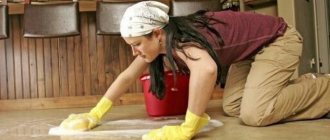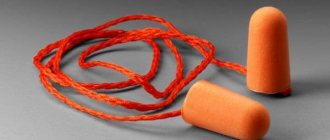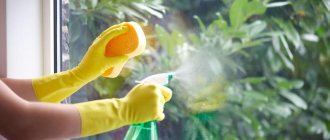A chicken egg is a common food product that any housewife, even a completely inexperienced one, can cook. At the same time, many of those who think that preparing egg dishes does not require special knowledge are mistaken. For example, not everyone understands why you need to wash eggs before breaking them. The women's website “Beautiful and Successful” found out that washing this product is a difficult topic, so today it invites its readers to get acquainted with all the nuances of the process.
Why wash eggs?
This question arises because even a child understands: we do not eat the shell, but throw it away. At the same time, it is impossible to break an egg without touching its hard shell; if you do not wash it, the dirt will partially remain on your hands, and partly will get into the spilled yolk and white. By eating such a product, we risk becoming infected with bacteria living on the shell. Therefore, it is best to wash the eggs before each use.
Store-bought eggs look quite clean, but good housewives wash them anyway. The fact is that the product passes through the bird’s anus, which contains colonies of various microorganisms. At the same time, particles of chicken or quail excrement also fall on the shell.
If an egg floats in water, then you cannot eat it - it is spoiled
Even though the poultry farm is kept clean, no company can guarantee that all the pets are healthy and do not suffer from salmonellosis or any other infection.
Two approaches to storage and breeding
Why don’t harmful microorganisms infect the yolk and white until the shell cracks? After all, it is covered with micropores... It's all about the protective film that envelops the egg from the outside - the cuticle. It is a powerful barrier between any bacteria and the inside of the egg. If you wash the egg thoroughly, it will damage the cuticle - any infection can easily penetrate through the pores into the product. Therefore, Russian scientists believe that eggs should not be washed before storage.
Foreign experts have a different opinion: even at the factory, the shells need to be disinfected, and before long-term storage, they must be washed and placed in a clean tray intended only for eggs. However, even the cleanest dishes do not provide sterility, otherwise the food in the refrigerator would never spoil.
We recommend: How to quickly and easily clean perches
The same two-pronged approach applies to incubation. Proponents of disinfection believe that it is necessary to take care of the chicks and disinfect the eggs before placing them in the incubator. Otherwise, after barely hatching, the chicks run the risk of becoming infected, and their body is still too weak to resist infections.
Opponents of the approach insist that disinfecting the shell interferes with the natural formation of immunity. The result is a weak, disease-resistant population.
Interesting fact: In laboratory conditions, more chicks emerge from disinfected eggs. However, farm experience does not confirm these results.
Should you wash eggs before storing?
The website sympaty.net hastens to warn its readers: do not immediately rush to remove trays of eggs from the refrigerator in order to immediately wash the food. You shouldn't do this. Why can't you wash eggs before storing? The fact is that the shell of the product is covered with a protective film, which helps them remain usable for a long time. When washed with water, this film is washed off. As a result, the product deteriorates before its shelf life expires.
If you store eggs in the refrigerator for some time, it is not recommended to wash them immediately.
It is not prohibited to wash the product. It happens that homemade dirty eggs simply cannot be placed in the refrigerator without cleaning. In this case, you should keep in mind that they can be stored for no longer than 5 days. That is why many housewives do not use water for cleaning, but simply wipe the eggs with a dry cloth to remove any remaining droppings.
With this method of purification, the shelf life of the product according to SanPiN increases to 30 days.
Do you wash before cooking?
Before breaking the shells to prepare omelettes, scrambled eggs or pancakes, they must be washed under warm running water, otherwise the bacteria living on the shells will get into the dish. Do I need to wash eggs before boiling? Some believe that there is no such need, since high temperatures mercilessly destroy salmonella colonies. At the same time, it won’t hurt to rinse the product once again before cooking to remove any accidentally stuck dirt. Moreover, this dirt is not always visible.
You need to wash eggs in warm water
Before immersing eggs in boiling water, it is also advisable to wash them.
It is also important to check that there are no cracks in the shell. If it is cracked, it is not recommended to eat the product.
So do you need to wash it?
The thin surface of the shell is covered by a shell invisible to the eye. It protects the insides of the egg from the penetration of dirt and bacteria. But this does not mean that microorganisms that threaten human health cannot enter the white and yolk.
Washing will help disinfect the surface of the eggs from germs contained in adhering dirt. To do this, you need to wash them with warm water before eating. Then the chances of getting infected are reduced.
However, it is worth considering that salmonella bacteria die only at temperatures above 70 degrees. Therefore, experts strongly recommend boiling eggs for 10-15 minutes before eating them.
And if the eggs are homemade, do they need to be washed?
Today, many consumers prefer products from small farms or even village home eggs. Birds on small farms are kept better, and therefore suffer less from salmonellosis. Do I need to wash domestic eggs before storing? Just like store-bought eggs, homemade eggs, chicken or quail, must be washed before use. The method for cleaning the product depends on how long it will be stored.
If you plan to drink them in the morning on an empty stomach in the next 5 days, it makes sense to rinse them thoroughly. This will save time and reduce the risk of contracting an intestinal infection or helminths.
Domestic eggs must also be washed before eating.
If the tray is placed in the refrigerator for a period of no less than 20-30 days, it is not worth subjecting the product to wet cleaning. Unwashed eggs should be kept in the refrigerator away from other foods so that pathogenic microorganisms do not transfer to them.
Is it possible to store washed home eggs in the refrigerator?
You should not wash eggs immediately after purchasing, as you will erase the invisible thin protective layer on the shell, and the shelf life will be significantly reduced because of this.
Why you can’t wash chicken eggs before storing and how long they can be stored in the refrigerator - the answer is simple:
- Unwashed - 4-5 weeks;
- Washed - no more than 4 days.
Important! Eggs must be washed thoroughly immediately before use. This will protect you from salmonella bacteria that may be on the surface of the shell.
How to wash properly?
There is no mystery in the art of washing farm produce. It is best to clean them under running warm, but not hot, water. The cleaning method depends on the origin of the eggs. Store-bought products that come from large poultry farms are usually cleaned in advance before packaging. They do not need thorough washing.
Farm and home chicken eggs often contain traces of droppings. To remove them and disinfect the shell, it is recommended to first soak the product in a solution of potassium permanganate for a couple of minutes. After this procedure, you can begin cleaning under running water.
Using a brush will help remove dirt more thoroughly
Washing with a dish sponge or brush will be of better quality. The instrument should be soaked in some kind of cleaning agent.
Useful tips
For those who receive testicles themselves
Any farmer can encounter dirt on the eggs that his chickens produce. In such situations, the task of the poultry farmer becomes to maintain the cleanliness of the chicken coop.
It is not hard. The main thing is to monitor the condition of the nests, drinking bowls with feeders, and bedding. Private owners often add straw to maintain cleanliness. Straws are hollow inside, which encourages mold growth. Mixing with food residues creates a favorable environment for the occurrence of infection and parasites.
Therefore, it is better to replace straw with sand. It will be easier to sift out the remains of feathers, droppings, and various debris using a sieve, and pour the clean sand back. In addition, it will help chickens get rid of annoying parasites by arranging baths to clean their feathers.
A good, but not cheap option is a special bedding layer. Its properties and benefits are described in the article “Litter with bacteria for a chicken coop.”
Regular disinfection of the poultry house is mandatory. Read the article “Methods for disinfecting a chicken coop at home” for important recommendations.
It is necessary to pay attention to the health of chickens. Regular monitoring will help separate the sick from the healthy so as not to risk the quality of the eggs.
For those who buy them
Having bought a tray of eggs in a supermarket or market, it is important not to neglect the recommendations that can protect your health and save time and nerves:
- You should not purchase large quantities from private farmers. And when purchasing in these places, it is recommended to ask the sellers for a veterinary opinion - a guarantor of product quality.
- The shell must be intact. Defects allow microbes to enter.
- Bacteria from the shell can contaminate neighboring products. Sealed trays and containers with lids will help solve this problem.
- Objects that have come into contact with the shell should be thoroughly washed with a weak solution of vinegar.
- It is necessary to approach cleanliness wisely. Eggs do not need to be soaked for 2-3 hours and then rubbed for a long time to be sure of their cleanliness.
- To prepare a tasty, safe dish, it is not necessary to wash eggs with aggressive detergents. It is enough to rinse them with hot water and immediately break the shell.
Dear readers, if you found the article useful, please rate it 5 stars. In the comments you can share your opinion about what you read, your own notes, and discuss the topic. Reposting will help spread important information.
Heated debates on the Internet continue: to wash or not to wash eggs? Every year, a small but still constant number of salmonellosis diseases are registered, so let’s look at this issue today.
When a chicken with salmonellosis lays an egg, the bacteria remain on the shell. If the egg sits for a long time, over time, bacteria penetrate inside and infect the white. Only an old egg will have an infected yolk.
Accordingly, the danger in the egg lies in the following:
- the most dangerous is the shell. Therefore, it is often recommended to wash eggs with a disinfectant, and eggs with cracks should be cooked until fully cooked.
- the second most dangerous is protein, it is best not to leave it raw.
- and already in third place the yolk is dangerous.
Therefore, all the horror stories about raw yolk are slightly overestimated, and the danger of protein is underestimated.











